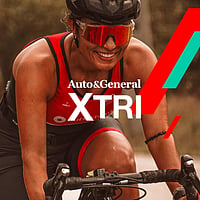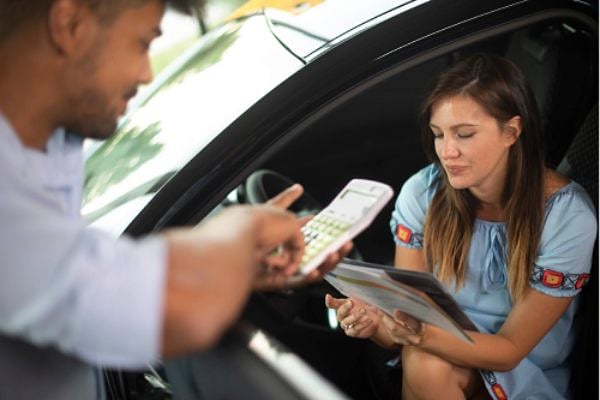Hospitality risk? Brokers lead the way
health-and-home
In an industry where a single unforeseen event can disrupt operations or tarnish a reputation, South Africa's dynamic hospitality sector demands more than just standard insurance; it requires a proactive risk management partner and insurance specifically catered to their needs.
Auto&General, working hand-in-hand with its network of expert independent brokers, delivers comprehensive risk mitigation strategies that empower hospitality businesses to build resilience and thrive amidst inherent weather-related-, liability-, and operational uncertainties.
Promoting trusted risk expertise
Brokers play a pivotal role, moving beyond simply placing cover to actively helping hospitality clients understand and mitigate risks before they escalate. Your true value lies in:
· Understanding unique business models: By recognising the distinct challenges faced by guesthouses versus large hotels or catering services, as an example.
· Guiding clients through vulnerability mapping: Identifying potential weak points in your clients' operations and developing targeted risk management strategies to counteract these weak points.
· Providing regular policy reviews: Ensuring that cover remains adequate and relevant as their business evolves and new risks emerge.
Identifying and addressing key hospitality risks
Your expertise as a broker lies in your ability to identify and articulate specific risks that hospitality businesses face. By proactively addressing these vulnerabilities, you position yourself as a crucial part of your client’s team, whether they run a game lodge, boutique hotel, guest house, venue, or catering business. As a specialist risk consultant, you should guide your clients through:
· Conducting thorough risk assessments: Helping them identify potential hazards specific to their operations.
· Implementing preventative measures <link to mitigation blog>: Advising on strategies such as fire safety protocols electrical compliance, storm and flood preparedness, safe food handling practices, and security systems.
· Selecting appropriate cover levels and endorsements: Ensuring their insurance aligns precisely with their unique risk profile and that they are not under or overinsured.
During these client interactions, underscore the specific key risks to build awareness of inherent problems:
· Fire and storm damage: Emphasise the potential for devastating losses and the critical need for comprehensive property cover and business interruption insurance to ensure swift recovery and income protection.
· Business interruption: Discuss how unforeseen events, not just physical damage, can halt operations, leading to significant income loss. Highlight the importance of business interruption insurance to safeguard revenue and cover ongoing expenses during closures.
· Liability claims: Underscore the risks associated with guest interactions and potential accidents on the premises, stressing the necessity of robust third-party liability cover to protect against legal costs and settlements.
· Money cover: Hospitality businesses frequently handle cash, making them vulnerable to theft. Highlight the importance of money cover for losses from stolen cash on premises, in transit, or from a safe. Clarify scenarios covered and insured values to ensure clients understand the protection and any security requirements.
· Theft or vandalism: Discuss the importance of cover that protects against financial losses due to criminal activity, safeguarding both assets and operational continuity.
The Strategic Advantage: pro-active risk mitigation in action
Pro-active planning can go a long way in you being seen as offering a comprehensive risk management solution. Here are five specific actions you should take with new hospitality clients to ensure you stand out from your competitors.
Top four stand-out actions
1. Understand your client’s operation: Understanding your clients’ operations allows you to provide advice that is accurate and in line with their current operations.
2. Compliance: Ensure that your client complies with the relevant industry regulations such as the Occupational Health and Safety Act and with risk improvement requirements following a survey conducted by an insurance company
3. Needs analysis: Conduct a thorough needs analysis, ensuring sums insured are accurate and up to date. A client must be insured for the current replacement cost.
4. Risk mitigation: Educate your client on risk mitigation including fire prevention, flood preparedness and the relevant liability disclosures.
Auto&General: Your Partner in Building Resilience
By recommending Auto&General's Hospitality Cover, you connect your clients with a partner who understands the intricacies of their business and is committed to paying out 100% of valid claims. Our specifically designed cover caters to a wide range of hospitality enterprises, including hotels, conference centres, game lodges, and catering services.
The inclusion of valuable extensions at no extra cost demonstrates our deep understanding of the sector's specific challenges. These include cover for bush fire/loss of game, damage by wild animals, damage to landscaped gardens, leakage from fire-extinguishing systems, loss of water, fatal injury, deterioration of stock, malicious damage, movement of guest vehicles, dry-cleaning damage, and spread of fire.
Support your hospitality clients in staying one step ahead of risk. Contact an Auto& General broker consultant for tools and resources that help you lead the way in risk mitigation.








